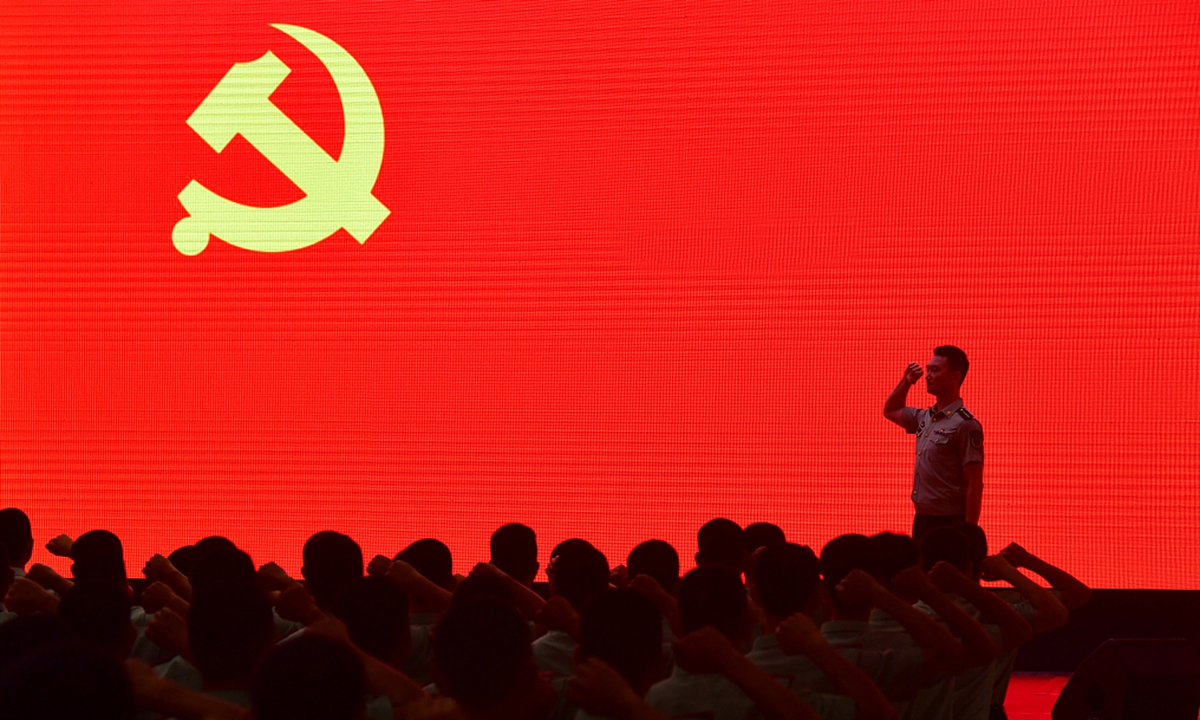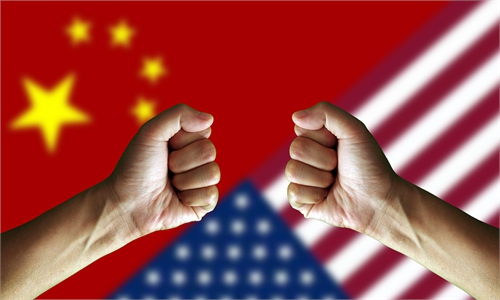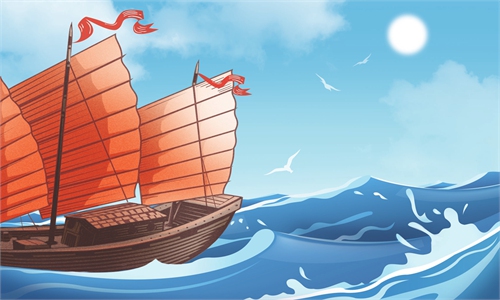
Photo:VCG
There are always certain forces outside of China and a handful of dissidents within China who believe that China is just superficially stable. In their minds, China is so fragile that even a small-scale conflict or protest will trigger a domino effect—and this will lead to the collapse of the Communist Party of China (CPC)'s leadership. Such understanding of China is too shallow: They think China is a forced compound like some historical European empires.
I'd like to tell these people how the People's Republic of China developed. I will also tell the essential difference between Chinese people's choice of CPC and the West's regular election of new administrations.
At the end of the Qing Dynasty (1644-1911), China fell into chaos with several thoughts competing with each other. When the CPC was founded in 1921, it was a very small and weak party with only dozens of members. It was just a small seed sowed by the movement of the Communist International (1919-43) in China. Every regime in China during that period wanted to eradicate the CPC, which has, through a bumpy road, finally grown strong and managed to govern the whole country.
Think about it: Without the people's unwavering support and history's strong push, how could the CPC be able to overcome so many difficulties and go from victory to victory?
According to official data, an estimated more than 21 million people had sacrificed themselves to found the PRC. Of these people, some 1.6 million of them have been honored as martyrs, while the names of the rest still cannot be confirmed. Despite a handful of traitors among the CPC members, the firm and arduous fighting was definitely the theme of the revolution during that period. No one was sure whether the CPC would win during the war, but still numerous people joined the Party without hesitation. Ordinary people across the country chose to follow the CPC.
If there wasn't Chinese people's extreme anger against the past regimes and their strong desire for fairness and justice, and if the CPC's propositions didn't deeply meet the Chinese nation's common wishes, how could so many Chinese people choose to go with the Party to make a historic overthrow at a huge price and lay the foundation for the socialist PRC?
When there were great setbacks during the revolution, huge sacrifices and decisive battles, Chinese people repeatedly confirmed their choice of the CPC. From 1921 to 1949, the CPC adjusted its routes and measures to promote revolutionary actions. Is there any comparable case in the West today that is proud of its political election system?
The founding of the PRC was realized by great efforts, and the Constitution of socialist China was forged with blood and tears. As they were hard-won, it is not easy to overthrow the Constitutional order led by the CPC. No, it's wishful thinking that will never come true.
Some people are always convinced that a comprehensive crisis is approaching China. They are excited to see chaos in any part of the country. They are keen to upload videos of mass incidents in China to prove their theory: "Look, China is about to be messed up." They look ridiculous to fanatically wishing for China to fall into chaos.
There has been a common impression that Western countries are not afraid of streets protests, but China is. Yet it is believed that riots which cannot break the West, will not break China either. China has strong power to curb the destructive political movements on the streets from the very source. If they do occur in China, the impact will only be temporary.
The point is what China looks like today. It has developed peacefully for a long time with its people's livelihood improving at a particularly rapid pace. The ruling CPC emphasizes serving the people. A few corrupt officials are severely punished without any chance to be forgiven. This is undoubtedly the best period of development in modern China as well as the harvest season after the last revolution. China has gone through great changes, so has its national strength and international status. Today, China is the morning sun at seven or eight o'clock on the global stage.
Public opinion in every country is dissatisfied with certain specific matters. But where can some people look for, or instigate fundamental anger, for all the Chinese people to go against their country? How can one possibly mobilize enough energy to subvert the country in a tsunami level and shape a so-called regime change?
Some people are pinning their hopes on the internet. They dream that the generation which has grown up in the internet era can "take down" the country. But they failed to realize that the rich information has provided people with more materials to display the comparison of governance's efficiency and humanization. The term "color revolution" has become one of the most negative words in the Chinese public opinion field, and is a synonym meaning "political fools."
China is undoubtedly on the right path. This is clearly proven by the country's rapid development and people's rising living standards. Quite a few like to complain. But the collective rationality of the Chinese people is maturing. In other words, Chinese people are not silly. Most problems in China are partial and temporary. People are well aware of their stake with the country's development.
China will continue to face challenges and tests. But those who are anxious to seek signs to predict that the country will fall really are thinking too much. China has withstood the turbulence 32 years ago. It has learnt its lesson. Some say the former Soviet Union did collapse. Right, but that's because its leadership was collectively confused. The Communist Party of the Soviet Union collapsed, yet how can the country stand still? China has learnt the lessons of its own country and from other nations. We can hardly be fooled so easily. Any force that wants to break apart socialist China will find itself daydreaming.
The author is editor-in-chief of the Global Times. opinion@globaltimes.com.cn




